In a world where learning never stops, adult education programs are like that unexpected plot twist in a movie—exciting and full of potential. Whether someone’s looking to pick up a new skill or finally tackle that long-forgotten dream, these programs offer a golden ticket to personal and professional growth. Who knew that learning could be this much fun?
Gone are the days of boring lectures and dusty textbooks. Today’s adult education programs are designed to engage and inspire, turning even the most reluctant learners into enthusiastic students. With flexible schedules and a variety of subjects, there’s something for everyone. So why not embrace the opportunity to learn something new? After all, life’s too short to stop learning, and who wouldn’t want to impress their friends with newfound knowledge?
Adult Education Program
Adult education programs offer diverse learning opportunities tailored to adults seeking personal and professional development. These programs encompass various subjects, from vocational training to degree completion and skill acquisition. Participants engage in learning environments designed to cater to their needs, enhancing accessibility and flexibility.
Many institutions provide evening and online classes, enabling individuals to balance education with work and family commitments. Course formats vary significantly, allowing instructors to adopt innovative teaching methods that stimulate engagement. With an emphasis on practical skills and real-world applications, these programs ensure that adult learners acquire knowledge relevant to their careers.
Statistics reveal that adult education can transform lives. A study by the National Center for Education Statistics indicated that 44% of adults enrolled in education programs reported improved job prospects. Various pathways exist, including community colleges, universities, and non-profit organizations, each offering unique resources and support.
Networking plays a vital role in adult education. Many programs foster connections among students, instructors, and industry professionals, enhancing career opportunities. Mentorship often becomes a key component, providing guidance and encouragement throughout the learning journey.
Ultimately, these programs emphasize the importance of lifelong learning and adaptability in an ever-evolving job market. The engagement and motivation seen in adult learners illustrate the effectiveness of these initiatives in promoting personal growth and community development. Adult education programs represent an invaluable resource for those committed to enriching their knowledge and skills.
Types Of Adult Education Programs

Adult education programs encompass various options catering to diverse learning needs. These include community colleges, online learning platforms, and vocational training.
Community Colleges
Community colleges offer affordable courses for adult learners wanting to advance their education. They provide a range of programs, from certificate courses to associates degrees. Flexible schedules accommodate working adults, enabling them to balance education with responsibilities. Many community colleges partner with local businesses, ensuring that training aligns with regional job market demands. Students often benefit from personalized support services, enhancing their chances for success and retention.
Online Learning Platforms
Online learning platforms deliver convenient educational opportunities for adults across all geographic locations. Major platforms feature diverse subjects, allowing learners to study at their own pace. Flexibility allows learners to choose times that fit their busy lives, whether early mornings or late nights. Many platforms offer interactive features, such as discussion forums and quizzes, to enhance engagement. Learners can also access resources from anywhere, promoting continuous education without geographical limitations.
Vocational Training
Vocational training programs focus on equipping individuals with practical skills for specific careers. These programs cater to trades, healthcare, technology, and many other fields. Hands-on training often occurs in simulated environments or through apprenticeships, providing real-world experience. Vocational training is typically shorter than traditional degree programs, leading to quicker job placements. Graduates frequently experience increased job opportunities, given that they possess industry-relevant skills and certifications.
Benefits Of Adult Education Programs
Adult education programs offer numerous benefits that significantly impact individuals’ lives, particularly in career advancement and personal growth.
Career Advancement
Career advancement becomes more achievable through adult education. Many individuals report improved job prospects after completing educational programs. A notable statistic reveals that 44% of adults enrolled in these programs experienced enhanced opportunities. The acquisition of new skills aligns with job market demands, ensuring relevance in today’s competitive landscape. Moreover, networking opportunities available through these programs foster essential connections that lead to potential job placements. These relationships often extend beyond the classroom, creating a supportive community among peers. Employers value candidates who invest in their education, making adult learners stand out during the hiring process. Embracing continuous improvement through education equips individuals with the necessary tools to progress in their careers.
Personal Growth
Personal growth thrives in an environment that supports ongoing education. Adult education enables individuals to pursue long-held dreams or interests, contributing to greater life satisfaction. Participants often discover new passions while learning diverse subjects, expanding their horizons. Flexibility in scheduling accommodates their busy lives, allowing exploration without overwhelming commitments. Engaging with material through innovative teaching methods often ignites a love for learning. Many individuals also report increased confidence after accomplishing educational goals, leading to a more positive self-image. Ultimately, adult education serves as a catalyst for personal development, encouraging lifelong learning and adaptability. Anyone committing to their personal growth will find adult education programs a valuable resource.
Key Challenges In Adult Education
Adult education programs face several challenges that impact their effectiveness. Identifying these issues helps in enhancing program success and learner experiences.
Accessibility Issues
Accessibility remains a significant challenge in adult education. Many potential learners encounter barriers related to transportation, technology, and financial constraints. A report by the National Center for Education Statistics highlights that 27% of adults cite costs as a primary obstacle to enrollment. Limited access to reliable internet can hinder participation in online programs as well, particularly in rural areas. Institutions must prioritize establishing support systems that address these issues, ensuring that education is truly accessible to all individuals.
Motivation And Engagement
Motivation and engagement directly influence adult learners’ success. Many adults juggle multiple responsibilities, making it difficult to prioritize education. Studies reveal that 53% of adult learners express a lack of motivation as a challenge in completing their programs. Creating engaging and relevant content can enhance learners’ interest, while personalized support helps them stay focused. Institutions should implement strategies such as flexible scheduling, interactive classes, and community-building activities to foster an encouraging educational environment that supports adult learners in achieving their goals.
Conclusion
Adult education programs are more than just a means to acquire knowledge; they represent a transformative journey for many individuals. By embracing these opportunities, adults can unlock new career paths and personal growth. With flexible options and innovative teaching methods, learning becomes an engaging experience rather than a chore.
As the demand for skilled professionals continues to rise, these programs play a critical role in equipping individuals with the necessary tools to thrive. The potential for networking and mentorship further enhances the value of adult education, creating connections that can lead to meaningful career advancements.
Ultimately, the commitment to lifelong learning through adult education is a powerful step toward achieving one’s aspirations and enhancing overall life satisfaction.

